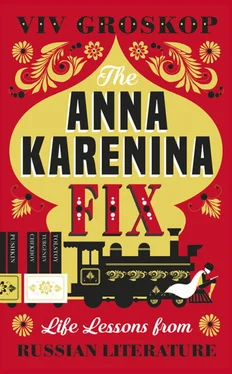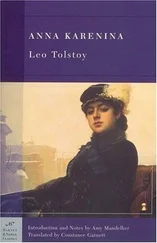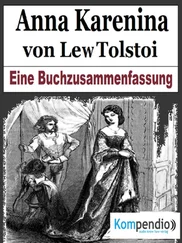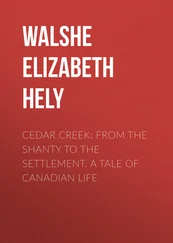Viv Groskop - The Anna Karenina Fix - Life Lessons from Russian Literature
Здесь есть возможность читать онлайн «Viv Groskop - The Anna Karenina Fix - Life Lessons from Russian Literature» весь текст электронной книги совершенно бесплатно (целиком полную версию без сокращений). В некоторых случаях можно слушать аудио, скачать через торрент в формате fb2 и присутствует краткое содержание. Город: London, Год выпуска: 2017, ISBN: 2017, Издательство: Fig Tree, Жанр: Публицистика, Критика, на английском языке. Описание произведения, (предисловие) а так же отзывы посетителей доступны на портале библиотеки ЛибКат.
- Название:The Anna Karenina Fix: Life Lessons from Russian Literature
- Автор:
- Издательство:Fig Tree
- Жанр:
- Год:2017
- Город:London
- ISBN:978-0-241-98126-9
- Рейтинг книги:3 / 5. Голосов: 1
-
Избранное:Добавить в избранное
- Отзывы:
-
Ваша оценка:
- 60
- 1
- 2
- 3
- 4
- 5
The Anna Karenina Fix: Life Lessons from Russian Literature: краткое содержание, описание и аннотация
Предлагаем к чтению аннотацию, описание, краткое содержание или предисловие (зависит от того, что написал сам автор книги «The Anna Karenina Fix: Life Lessons from Russian Literature»). Если вы не нашли необходимую информацию о книге — напишите в комментариях, мы постараемся отыскать её.
‘A passionate, hilarious, joyful love letter to Russian literature’ Allison Pearson, Sunday Telegraph
‘A delightful primer and companion to all the authors you are ashamed to admit you haven’t read’ The Times
The Anna Karenina Fix: Life Lessons from Russian Literature — читать онлайн бесплатно полную книгу (весь текст) целиком
Ниже представлен текст книги, разбитый по страницам. Система сохранения места последней прочитанной страницы, позволяет с удобством читать онлайн бесплатно книгу «The Anna Karenina Fix: Life Lessons from Russian Literature», без необходимости каждый раз заново искать на чём Вы остановились. Поставьте закладку, и сможете в любой момент перейти на страницу, на которой закончили чтение.
Интервал:
Закладка:
All this detail is unimportant when it comes to understanding War and Peace in theory. But for me it’s been crucial in humanizing the author of a book with such a gargantuan reputation. It’s a case of separating the genius from the man. Recognizing the gap between Tolstoy’s wishful thinking about the perfect life and the reality of the life he actually led has been a huge comfort. Anna Karenina was what gave me my first addictive fix of Russianness, reeled me in and left me hooked on romantic, big ideas that allowed me to escape the confines of childhood and a family who didn’t seem to want to know much about their identity. Over time, all of that unravelled and proved to be as much of a fiction as any Russian novel. And yet, as I came to War and Peace in later life, with children of my own and a whole other family that I have built for myself, I found a way for these stories and philosophies to ‘fix’ me as a person, both in the sense of mending me (because it’s always comforting to know that other human beings are just as messed up as you are, even Tolstoy) and in the sense of ‘fixing’ or ‘stabilizing’ my identity. I will never be a beautiful and dramatic woman (although I seem to have unwittingly cultivated an upper-lip moustache which would have driven Tolstoy wild with desire). I will not attract the attention of a handsome, dark stranger in a flurry of snowflakes at the station. I am not and will never be Russian. But I am comfortable in my identity as someone who will always love stories and find solace in them.
My own life moved further away from Russia the more I became enmeshed in family life. I also realized that in focusing so heavily on the identity I felt had been denied to me, I’d turned away from looking at the things I was really drawn to in life. After that email from my unknown uncle in Canada, things were settled, even if they had been resolved in a way that made me feel small. I had been stupid for wanting to be different, for wanting to ‘prove’ something about my roots. I had become addicted to chasing a dream. Giving up on it was sobering. I preferred it when I could say, ‘I don’t know where my name comes from. But there’s no reason why I couldn’t be Russian…’ So the lesson in War and Peace is apt: what matters in life is being comfortable with what you have and who you are.
Meanwhile, my extremely English husband made it his business to track down all the information he could about my ancestors. Whether this was motivated by his own curiosity to know the truth or out of empathy for me, I don’t know. I think a bit of both. The strange thing is, I would never have gone after all the official records and census documents that he went after. I had had enough of knowing. I knew my uncle had not got it wrong. It had been confirmed by too many people. And so that was that. I had very little desire to find out any more. My fantasy had been exposed and I wanted to forget the whole thing.
Over the next few years, though, Simon collected the facts. According to the census, Gershon Groskop came to Stockton-on-Tees in 1861. He had a son called Ashkel. Then Ashkel had a son called Levi. (I still marvel that the word ‘Jewish’ was not uttered once during my childhood.) Levi was my great-grandfather. He died a few years before I was born. My father knew him as a child. I will probably never know what made Gershon leave Łódź, why he chose England and not another destination and why, when he arrived, he pretty much stopped being Jewish immediately: he married a young Englishwoman, cutting out the female line. We don’t know what he was running away from or running towards in the 1860s. He left a place with a population of around 15,000 that swelled to 500,000 before the Second World War, of whom around 200,000 were Jewish. When the Soviet army liberated Łódź from the Nazis in 1945, only 877 Jews were left alive. Maybe none of Gershon’s descendants were involved in all that. Maybe they had all already gone abroad by then, just as he had. But it’s something I think about.
In England, he cannot have had an easy life as an immigrant: he was a rag-and-bone man when he first came over here. The respectability of selling things did become a family trait and informed my grandfather’s pride about owning his own shop. I have a picture from the late nineteenth century of some of my relatives selling nougat from a market stall. I often wonder whether Ashkel and Levi would have spoken any Yiddish, the language of their father and grandfather. My grandfather seemed to have no knowledge of such things, although my grandma used to say she could remember her father-in-law, Levi, muttering to himself in a strange language and wearing a skullcap. I don’t know if that was fanciful on her part or something that she realized only once the obvious truth had been spoken out loud. Certainly, no one talked about these things before the email from the Canadian uncle. In the light of my enthusiastic but pointless quest for an identity, ‘Groskop’ itself turned out to be an extraordinary example of nominative determinism. A friend who speaks Yiddish later told me that Groskop (‘big head’) could mean many things: arrogant, big-headed, large of brain, intellectual. Or it could just mean stupid. My full name translates as ‘Lively Fathead’. Oh, the irony.
A long time after all this, I figured out another piece of the puzzle. I knew I’d been attracted to Russian through the literature and through my weird name. But I had always wondered why it had to be Russian. Why had I tuned into that? Where did it come from? There was no reason for me to pick up a copy of Anna Karenina , in particular. There was no real reason for any of it. Why hadn’t I decided my name was Dutch and become interested in, say, Rembrandt, and tried to become a painter? (This would have made about as much sense as what I did do.) Much later, in a conversation with my father, I realized that my grandparents had a Russian woman as a next-door neighbour when they had been living in the grocery store they ran when I was a child. This woman – I couldn’t picture her – would most likely have been one of the first customers for the peg dolls I used to sell for five pence, sitting on top of the shop counter. She must have had an accent. She must have been unusual. She would have stuck in my mind. And I would have asked where she was from. And she would have said: ‘Russia.’
This was the place where I had gone to live shortly after my sister was born. I was three years old and away from my parents for the first time. My most striking memories of my childhood are of this time. I would not have known anyone ‘foreign’ until that moment, and I did not meet a single other Russian person apart from this woman until I went to university and was taught Russian. I can’t know for sure, but I think something about her nudged something in me. Or a memory of her sparked something off when I read something… I can’t know. If I ever had a memory of her, it has gone. But she is the only connection in my past to Russia, and the one I formed in my subconscious. It must all go back to her.
The funny thing is, I later discovered that there is a wonderful blurring of origin in all the documents relating to Gershon Groskop. I don’t imagine he would have been literate or particularly able to speak much English. All the census documents carry his replies to the question of where he comes from. It will have been noted down by another person, so I have to wonder whether they prompted him or changed what he said to something they could understand. But he never says: ‘Łódź, Poland.’ Because he would not have thought of that as being where he came from: Poland did not regain its independence until 1918. I imagine his identity would have been Jewish and his language would have been Yiddish. But here – astonishingly, in black and white on the official documents – is what Gershon liked to answer when he told people where he was from: ‘Russia’, ‘Prussia’ and ‘Prussian Russia’. He was never, strictly, Russian, and neither, strictly, am I. But the territory we come from formed part of the Russian empire. So, even though I was wrong, I was right after all. Prussia is close enough. Now all I need to do is grow some thicker eyelashes and I’ll virtually be Anna Karenina after all.
Читать дальшеИнтервал:
Закладка:
Похожие книги на «The Anna Karenina Fix: Life Lessons from Russian Literature»
Представляем Вашему вниманию похожие книги на «The Anna Karenina Fix: Life Lessons from Russian Literature» списком для выбора. Мы отобрали схожую по названию и смыслу литературу в надежде предоставить читателям больше вариантов отыскать новые, интересные, ещё непрочитанные произведения.
Обсуждение, отзывы о книге «The Anna Karenina Fix: Life Lessons from Russian Literature» и просто собственные мнения читателей. Оставьте ваши комментарии, напишите, что Вы думаете о произведении, его смысле или главных героях. Укажите что конкретно понравилось, а что нет, и почему Вы так считаете.












